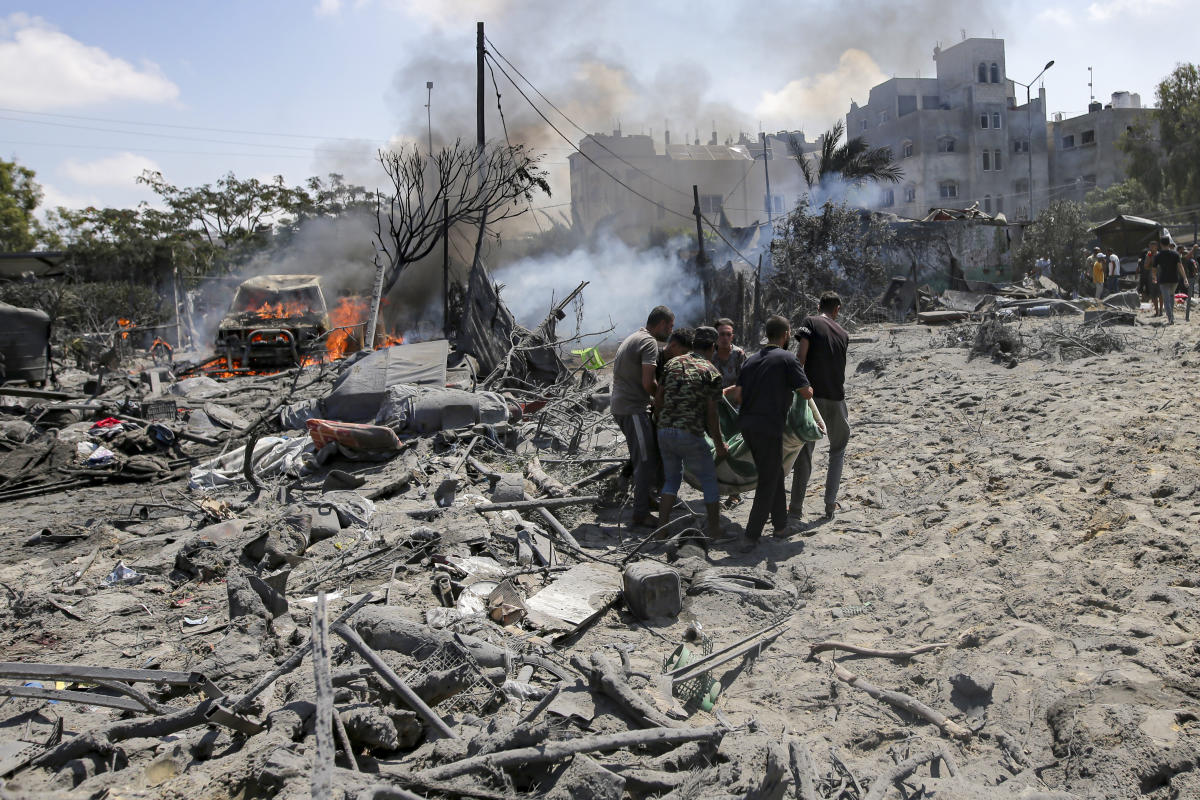Hunger as a weapon in the Sudan war

UN special reporters warn of impending famine and over 25 million people urgently need help

People queued to register for aid at a camp for internally displaced people in Agari, North Kordofan, last week. Photo: Guy Peterson/AFP/Getty Images
Sudan plunged into chaos in April last year when simmering tensions between the country’s military and a notorious paramilitary group, the Rapid Support Forces (RSF), erupted into open fighting in the capital Khartoum and elsewhere in the country.
According to the UN, more than 14,000 people were killed and 33,000 others wounded or injured during the 14 months of fighting. However, human rights activists believe the number of victims could be much higher.
There are numerous reports of sexual violence and other atrocities that human rights groups say amount to war crimes and crimes against humanity. The conflict triggered the world’s largest refugee crisis, forcing more than 11 million people to flee their homes.
“Both the SAF (Sudanese Armed Forces) and the RSF are using food as a weapon and starving civilians,” the experts said. “The level of hunger and displacement we have seen in Sudan Today is unprecedented and has never been experienced before.”
Neither the military nor the RSF responded to calls seeking comment.
The experts warned that famine was imminent as humanitarian aid was blocked and the harvest season was disrupted by the war. They said more than 25 million civilians in Sudan and those who had fled the country were starving and in urgent need of humanitarian assistance.
A report by the Clingendael Institute think tank last month said that around 2.5 million people in Sudan could die of hunger by the end of September. Around 15 percent of the population in the Darfur and Kordofan regions are believed to be worst affected.
The independent experts said local efforts to combat Sudan’s hunger crisis have been hampered by unprecedented violence and targeted attacks on civil society and local aid workers. Dozens of activists and local volunteers have been arrested, threatened and prosecuted in recent weeks, they said.
“The targeted attacks on humanitarian workers and local volunteers have undermined the relief effort and put millions of people at further risk of starvation,” they said. “Local aid workers are risking their health and lives working across the front lines.”
They called on both sides to “stop blocking, looting and exploiting humanitarian aid.”
The experts are part of the UN Special Procedures, the largest body of independent experts in the organization’s human rights system.
Fighting has centered in recent months on El Fasher, the capital of North Darfur state, trapping hundreds of thousands of civilians. According to the UN, at least 143,000 people have been forced to flee the city in the past three months.
The UN Security Council earlier this month called on the RSF to immediately end its siege of the city, the last military stronghold in the sprawling Darfur region.
© 2024 Guardian News & Media Limited or its affiliates.



